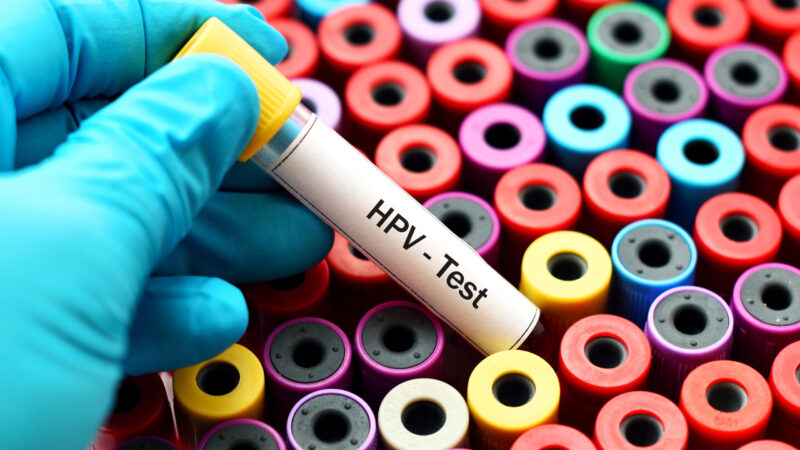How new at-home HPV test kits could help Alabama fight cervical cancer
The Food and Drug Administration has approved the country’s first at-home HPV screening kit. That disease causes nearly all cervical cancers. The Alabama Department of Public Health (ADPH) reports Alabama is consistently among the top five states for rates of cervical cancer. While some hope the new kits might turn things around, others have questions.
The new kits, made by Teal Health, come with a swab for collecting vaginal samples, which are then mailed to a lab for screening. Right now, the self-testing kits are only available for use on site at a clinic. And while currently the at-home kits are only being used in California, Alabama officials anticipate that will change.
“HPV self-testing is something that we have been hoping for for a while,” Nancy Wright said.
Wright is the director of ADPH’s Cancer Prevention and Control Division and leader of the state’s Operation Wipeout Cervical Cancer. She noted the kits were approved as potential alternatives to pap smears, which are widely considered uncomfortable and even painful.
“Often embarrassment and discomfort are barriers,” Wright said. “And then, even more importantly, in some of our rural areas, it’s very difficult to get access to that cervical cancer screening and access to care.”
Wright said she hopes the kits will help Alabama not only bring down high cervical cancer rates, but also reach its goal to eliminate cervical cancer entirely by 2034, despite its healthcare deserts.
“We can stop it to where our children and our grandchildren won’t even know what it is,” Wright said. “And we can do this within my lifetime.”
Others see the kits bringing further challenges.
“The thing I’m concerned about is the backstream and downstream sort of management of an abnormal test,” Dr. Warner Huh, chair of UAB’s Department of Obstetrics and Gynecology, said.
He said the at-home kits should be simple to use and studies have shown the results will be accurate. But he questions what happens if a test returns abnormal results.
“Where do they go?” Huh said. “Who sees them? Who’s gonna cover those costs potentially?”
Huh said he does not know for sure if the state can handle evaluating and treating those patients.
“I don’t want people to fall through the cracks knowing that they had an abnormal test and they A, couldn’t see somebody, or B, that there wasn’t someone potentially following up on those results,” Huh said.
He added that treatment is just as important to reducing cervical cancer rates as screening.
Auburn tabs USF’s Alex Golesh as its next coach, replacing Hugh Freeze on the Plains
The 41-year-old Golesh, who was born in Russia and moved to the United State at age 7, is signing a six-year contract that averages more than $7 million annually to replace Hugh Freeze. Freeze was fired in early November after failing to fix Auburn’s offensive issues in three seasons on the Plains.
Alabama Power seeks to delay rate hike for new gas plant amid outcry
The state’s largest utility has proposed delaying the rate increase from its purchase of a $622 million natural gas plant until 2028.
Former U.S. Sen. Doug Jones announces run for Alabama governor
Jones announced his campaign Monday afternoon, hours after filing campaign paperwork with the Secretary of State's Office. His gubernatorial bid could set up a rematch with U.S. Sen. Tommy Tuberville, the Republican who defeated Jones in 2020 and is now running for governor.
Scorching Saturdays: The rising heat threat inside football stadiums
Excessive heat and more frequent medical incidents in Southern college football stadiums could be a warning sign for universities across the country.
The Gulf States Newsroom is hiring an Audio Editor
The Gulf States Newsroom is hiring an Audio Editor to join our award-winning team covering important regional stories across Mississippi, Alabama and Louisiana.
Judge orders new Alabama Senate map after ruling found racial gerrymandering
U.S. District Judge Anna Manasco, appointed by President Donald Trump during his first term, issued the ruling Monday putting a new court-selected map in place for the 2026 and 2030 elections.









